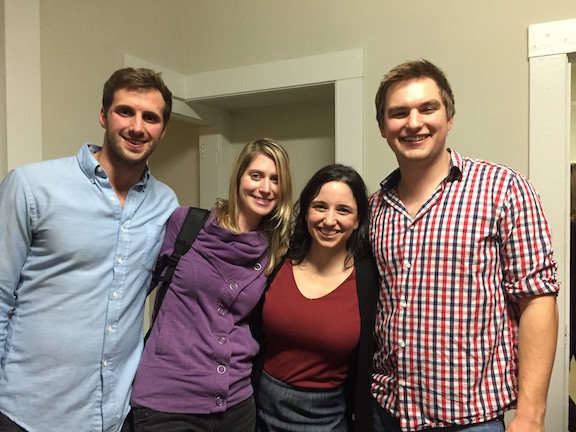I've wanted to join YC for the last 8 years. I've applied to and been rejected by YC three times.
But when we got into YC with ZmURL, we turned it down. Here’s why…
YC as an Employee
I first learned about YC in 2012 from a friend who was obsessed with startups. Soon, all of my smartest friends were dropping out of school to do YC. In 2014, I joined them by bailing on an internship to work for Picnic Health as they went through YC S14.
That summer I lived in a house in Redwood City with the rest of the team. YC forced us to focus and make progress each week. This culminated in Demo Day which allowed us to raise a seed round without much real traction.

At my mom's urging, I left Picnic Health to finish college, but that summer left a lasting impression. After graduating and joining Benchling (another YC startup), I watched jealously as friends started companies and got into YC.
Rejected, Rejected, Rejected, Accepted
After leaving Benchling to start my own company, I quickly learned that starting a company was much harder than expected. I applied to YC and got rejected. Rinse and repeat. I ended up starting 3 companies and getting rejected from YC three times.

This March, as COVID spread in the US, I stayed up late talking with Danqing about what we could do to help. From these conversations, we built ZmURL to help a friend of mine sell tickets to her Zoom Yoga classes.
In just a week, ZmURL went from an idea to being featured on TechCrunch. To keep up with the growth, we focused on building product 7 days a week. For one weekend we took a break to lift our heads up, talk about the future, and to apply to YC.
To my surprise, after getting rejected three times, we got into YC for the current batch. Even more surprisingly, after weighing our options, we decided to turn down YC.
I realized that we applied to YC just because it was "the thing to do" and that YC is no longer the right fit for every startup.

The Benefits of YC
Before explaining why we turned down YC, it's helpful to know what makes YC so awesome. From going thru YC with Picnic Health, YC helped us with:
Coursework — Learn how to startup. Attend inspirational dinners.
Accountability — You're forced to deliver results every week. Compete with your batchmates.
Network — Bond with other smart founders. Reach out to YC alums
Branding — YC is cool, it's cool to be part of YC.
Sales Leads — If you are selling to startups, YC is full of them.
Fundraising — Demo Day builds buzz and FOMO.
YC Without YC
Today, many of these benefits can be gained without joining YC while other aspects of YC have gotten worse due to the increased the batch size.
Coursework — YC has open sourced Startup School and Startup Class.
Accountability — Write a weekly update to friends or post your progress to Twitter.
Network — Join an early stage startup. Meet interesting people online.
I was able to build an invaluable network of mentors over the past 5 years working at startups and starting companies in San Francisco. I've made interesting friends from posting on Twitter and reaching out just to chat with interesting people. (See Tweet below.)Branding — You can build a personal brand by writing online, but the YC brand is very good.
Sales Leads — If you aren't selling to startups, you don't benefit as much from YC’s network.
Fundraising — From the founders I've talked to, the first remote Demo Day failed. This could have been due to COVID, so it'll be interesting to see how the next Demo Day goes...

Who Should do YC
YC is still the best tech accelerator and they are doing amazing work to make starting companies more accessible. YC is a great fit for you if are:
A Tech Outsider — YC helps you meet other founders and can introduce you to any VC.
Selling to Startups — Stripe, Segment, Gusto, and Brex grew quickly by selling to other YC companies. As a YC founder, it's easy to reach out to alums and pitch them, although this is getting worse as the large batch sizes dilute the network.
Hungry for Prestige — YC used to be for outsiders. "Why would you start a company instead of work for Google?" But now joining YC is cool, so it's a valuable stop on the Harvard → McKinsey → MBA trajectory. (This has also contributed to YC's dilution.)
While increasing the batch size is the right thing for YC (and for the world), it's made the experience worse for founders who get less facetime with partners and end up directly competing with batchmates. While YC told us there wouldn't be competitors in our batch, we've already seen at least 3 very similar companies in the current YC batch...
After weighing our options, we decided to skip YC and to try to raise a seed round. I'll talk about how that went in my next post...